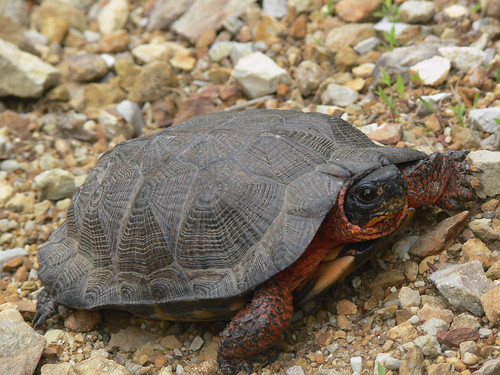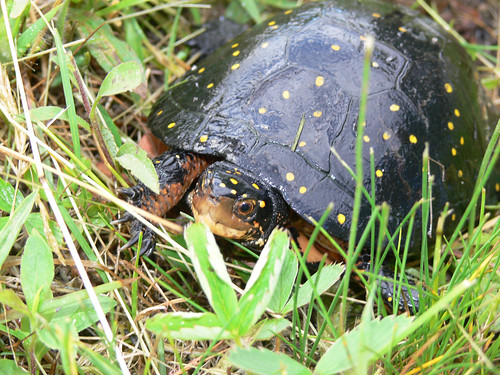In late May and throughout June, several turtle species complete a short migration in order to reach breeding grounds. Two of the most commonly encountered turtles during this movement are the Eastern Box Turtle (Terrapene carolina) and the Wood Turtle (Glyptemys insculpta). These turtles may cover large distances as they move from the woodlands and meadows (where they live for most of the year) to wetlands for breeding. Once these turtles mate and the females have laid eggs, the adults turn around and return into the woods from which they came.
In order to reach suitable breeding habitat, the turtles must cross large expanses of land. In today's world, this means that the turtles are forced to cross roads. Roads situated in turtle habitat are often small, back roads with relatively little traffic, which could be good for the turtles. However, people often travel at high speeds along these curvy roads, and a slow, road-crossing turtle stands no chance against a two ton car. As a result, many turtles are killed this time of year. While traveling along a wooded road during the morning hours and after a evening or nighttime rain, it is not uncommon to find several dead box and wood turtles.
During the breeding season, it is incredibly important to look out for these turtles as they are crossing roads. These turtles, especially the Eastern Box Turtles, are known to be rapidly declining throughout much of their ranges. The last thing this species needs to face is death by automobiles. This problem can be greatly reduced by people who drive through these turtle crossings. Simply moving the turtles to the side of the road can save the life of the turtle and possibly the offspring.
One word of caution: while Eastern Box and Wood Turtles are easy to carry across a road, don't attempt to help a Snapping Turtle unless you have no need for your fingers!






No comments:
Post a Comment